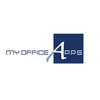Data privacy is a critical concern for businesses operating in cloud-based Enterprise Resource Planning (ERP) environments. With the increasing reliance on cloud technology, it is essential to take proactive measures to protect sensitive data from unauthorized access and breaches. Here are ten tips for ensuring data privacy in cloud ERP environments.
- Choose a Trusted Cloud Service Provider
When selecting a cloud service provider for your ERP system, it is crucial to choose a trusted and reputable provider. Look for providers that have a proven track record in data security and privacy. Consider their certifications, compliance with industry standards, and their reputation among other businesses in your industry. A trusted cloud service provider will have robust security measures in place to protect your data.
- Implement Strong Access Controls
Implementing strong access controls is essential for maintaining data privacy in cloud ERP environments. Ensure that only authorized personnel have access to sensitive data and that access is granted based on the principle of least privilege. Regularly review and update user access privileges to prevent unauthorized access. Implement multi-factor authentication for an added layer of security.
- Encrypt Data in Transit and at Rest
Encrypting data in transit and at rest is a crucial step in ensuring data privacy in cloud ERP environments. Use secure protocols such as SSL/TLS for data transmission and ensure that data is encrypted when stored in the cloud. Encryption adds an extra layer of protection, making it difficult for unauthorized individuals to access and decipher sensitive data.
- Regularly Update and Patch Systems
Keeping your cloud ERP system up to date with the latest security patches is vital for data privacy. Cloud service providers often release updates and patches to address security vulnerabilities. Regularly check for updates and apply them promptly to ensure that your system is protected against known vulnerabilities.
- Conduct Regular Security Audits
Regularly conducting security audits of your cloud ERP environment can help identify potential vulnerabilities and areas for improvement. Perform penetration testing to simulate potential attacks and assess the effectiveness of your security measures. Address any identified weaknesses promptly to maintain data privacy.
- Train Employees on Data Privacy Best Practices
Employees play a crucial role in ensuring data privacy in cloud ERP environments. Provide comprehensive training on data privacy best practices, including proper handling of sensitive data, recognizing phishing attempts, and maintaining strong passwords. Regularly reinforce these best practices to ensure that employees are aware of their responsibilities in protecting data privacy.
- Implement Data Loss Prevention Measures
Implementing data loss prevention (DLP) measures can help prevent unauthorized data disclosure or leakage. DLP solutions can detect and prevent sensitive data from being transmitted outside of the organization's network. By implementing DLP measures, businesses can have greater control over their data and prevent data breaches.
- Regularly Back Up Data
Regularly backing up data is essential for data privacy in cloud ERP environments. In the event of a security breach or data loss, having up-to-date backups ensures that data can be restored quickly and efficiently. Choose a reliable backup solution and establish a regular backup schedule to minimize the risk of data loss.
- Monitor and Analyze System Logs
Monitoring and analyzing system logs can help detect any suspicious activities or potential security breaches in your cloud ERP environment. Implement a robust log management system that captures and analyzes logs from various system components. Regularly review and analyze these logs to identify any anomalies or security incidents.
- Stay Informed about Data Privacy Regulations
Stay informed about data privacy regulations and compliance requirements relevant to your industry and geographic location. Understand the legal obligations and ensure that your cloud ERP environment complies with applicable regulations such as the General Data Protection Regulation (GDPR) or the California Consumer Privacy Act (CCPA). Regularly review and update your data privacy policies and practices to align with evolving regulations.
In conclusion, ensuring data privacy in cloud ERP environments is crucial for businesses to protect sensitive information from unauthorized access and breaches. By following these ten tips, including choosing a trusted cloud service provider, implementing strong access controls, encrypting data, regularly updating systems, conducting security audits, and training employees, businesses can enhance data privacy and mitigate the risk of data breaches. Remember to stay informed about data privacy regulations and compliance requirements to ensure that your cloud ERP environment remains secure and compliant.


No comments yet